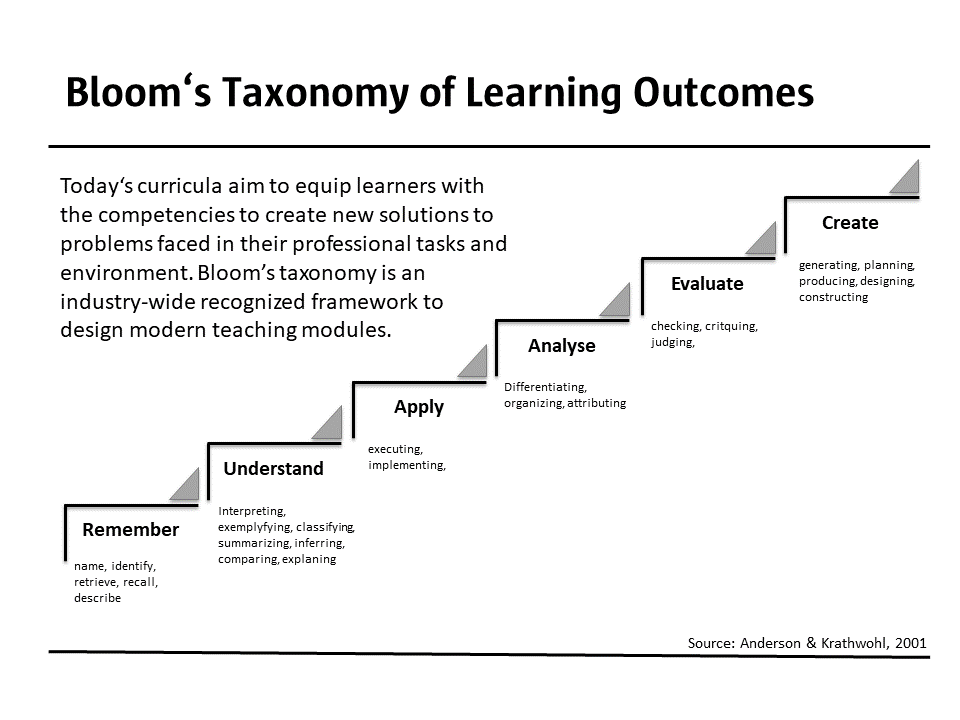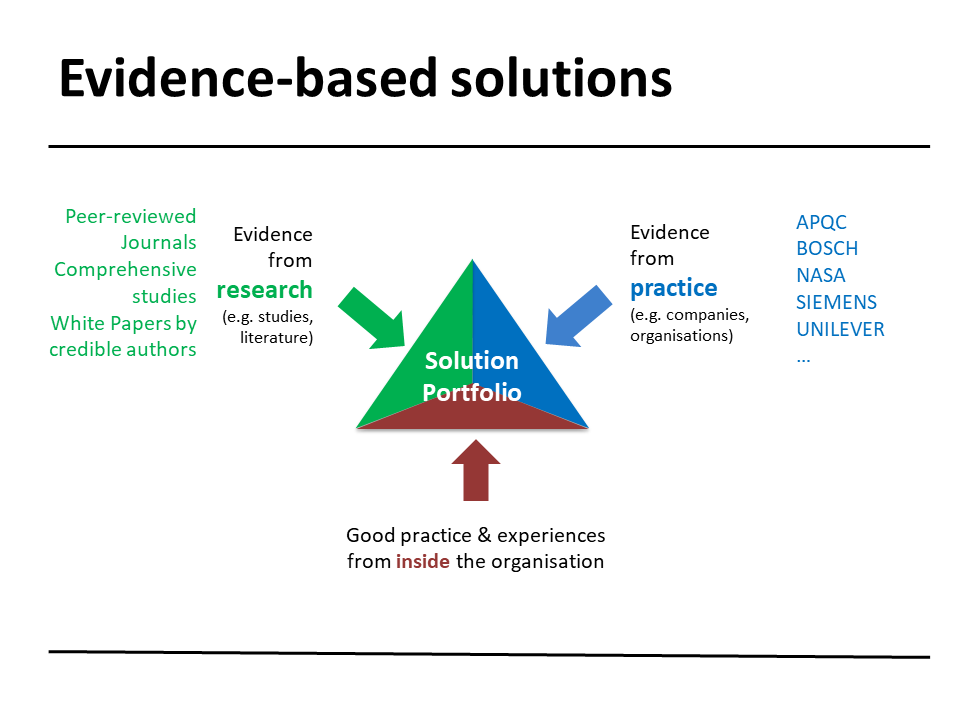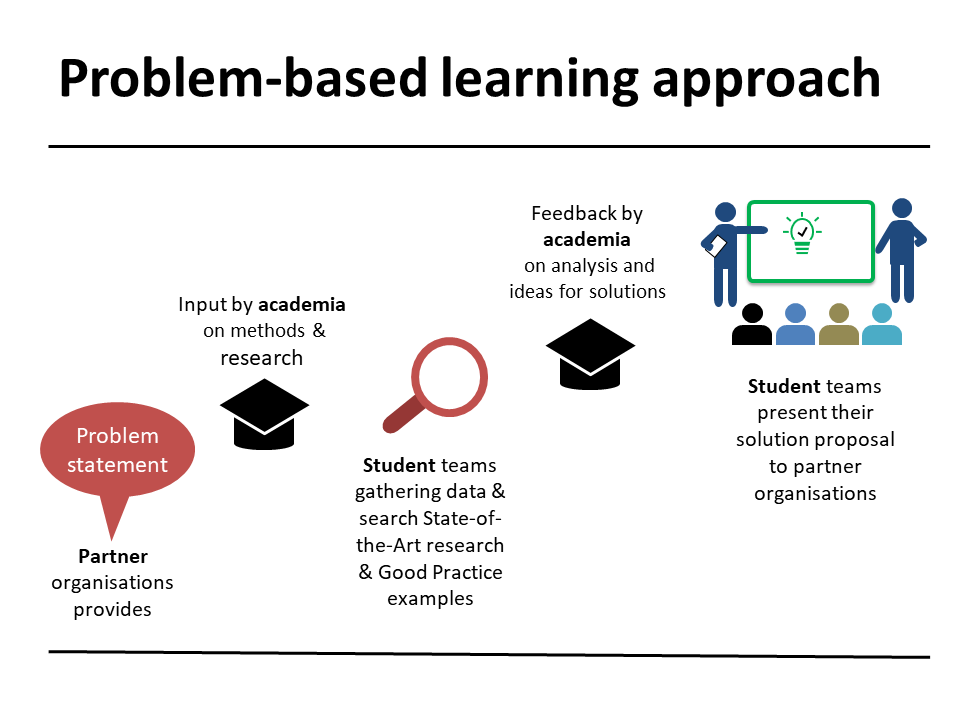Teaching Approach: Competencies developed by problem-based learning
My teaching approach is based on the problem-based learning (PBL) approach addressing problems preferable from practice partners from businesses, public administration and third sector organisations (associations, non-for-profit or non-governmental organisations). The aim is to develop the competencies of the learners aligned to the competency taxonomy by Anderson and Krathwohl – based on Bloom’s taxonomy – starting from basic remembering and understanding, via applying knowledge and analysing towards evaluating and creating new solutions.

Based on a thorough understanding for core concepts and basic theories of the subject, students will work through cases to learn to apply the knowledge, analyse the situation (e.g. market environment, organisational processes) and evaluate options for improvements (e.g. new digital solutions, new forms of work, etc.) with the aim to create a proposal to be presented to the management. In this context, learners are requested to emerge themselves in the role as the process owner for different core processes such as research & development, sales & marketing, purchase, production, shipping, and customer service. This problem-based learning approach with real-world cases should also help to apply core project management techniques, train teamwork and skills to create and deliver a compelling presentation of a proposal for decision making.
The creation of solutions and problem-solving should follow an evidence-based approach. The proposals have to be based on the latest state-of-the-art knowledge and, if available, good or best practice examples from organisational practice, too.

Given my long experience as the former Chairman of the Global Benchmarking Network (GBN) and my collaboration with businesses and other organisations from small businesses to multi-national corporations, I can involve representatives from organisational practice into my teaching. Particularly in Knowledge Management, I have involved practitioners from different organisations. From the business world companies such as Arup (London, UK), Babbel AG (Berlin, DE), Bundes Druckerei Group (Berlin, DE), Continental AG (Hannover, DE), Detusche Bahn AG (Berlin, DE), NNE (DK), Otto Group (Hamburg, DE), PTG Energy (Bangkok, TH), PWU GmbH (Potsdam, DE), Siemens AG (Munich, DE). From the public sector such as Bezirksamt Berlin-Mitte – District Office Berlin-Center (DE), Senate of Berlin (DE), European Joint Research Center (Italy), European Patent Office (Munich, DE), Kenyan Revenue Authority (Nairobi, KE) and NASA (USA). From the third sector are Evangelisches Johannes-Stift Behindertenwerk (Berlin, DE), Deutsche Kinder- und Jugendstiftung – German Children and Youth Foundation, DKJS (Berlin, DE), International Olympic Committee – IOC (Lausanne, CH), Médecins Sans Frontières – MSF (Geneva, CH).

A final element of my teaching is a collaborative format between academia and practice called the “Business Challenge”. For this team-based competitive format, real-world challenges linked to the curriculum area are gathered from three to four organisations and student teams (2 to 5 students) will be briefed by the practice partners at the kick-off event. After each team has been assigned one challenge and partnered with the related organisation, the data gathering and analysing steps are planned, prepared and conducted at the partner side. The academic is acting as a resource person regarding methods for gathering data and analysis as well as providing feedback to potential improvement options. Over a period of three months, students work in their teams, are given input by the academic resource person and the practice partner to elaborate a proposal to be presented at a join final workshop. The best proposal will be awarded a special recognition for their innovative and evidence-based solution proposal.

